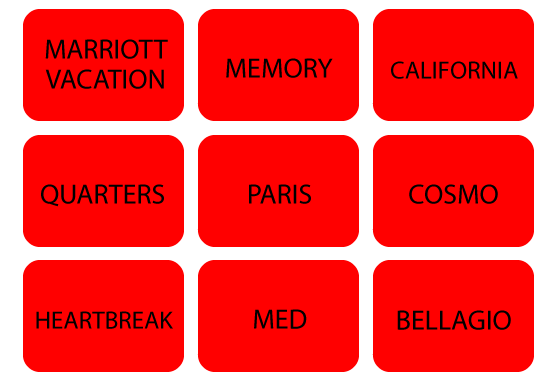In this issue
- The Safe Hotels Act Update
- “Getting Junked?”: A New Update for Hoteliers
- The Labor Law Pendulum: Anticipated Changes for the Hotel Industry
- Navigating Antitrust Risks: The Hidden Dangers of AI and Software Pricing and Inventory Tools for Hotels and Property Managers
- Negotiating Mixed-Use Branded Hotel and Residential Contracts
Upcoming and Recent Events
- Congratulations to our raffle winners from the 12th Annual Georgetown Hotel & Lodging Legal Summit in September! Andy Bullard of Host Hotels & Resorts and Josh Babbitt of BH3 Management won an awesome Akerman portable speaker!
The Safe Hotels Act Update
![]() KEY TAKE
KEY TAKE
The revised NYC Safe Hotels Act takes effect in May 2025. While it has limited some concerns, speed bumps are likely in the administration and enforcement of this legislation.
In our September Issue of Leisure Law Insider, we summarized Int. 991-2924, known as The Safe Hotels Act (New York City Council’s proposed hotel licensing and regulatory statute), and provided some observations about its implications. Since the September article, revisions have been made and a final version, dated October 23, 2024, was signed into law by Mayor Eric Adams on November 4, 2024, as Section 1, Chapter 2 of title 20, Subchapter 38 of the Administrative Code of the City of New York (the Act). The Act is expected to take effect on May 3, 2025.
Read More
“Getting Junked?”: A New Update for Hoteliers
![]() KEY TAKE
KEY TAKE
FTC’s final “Junk Fees” Rule Targets Hotels and Resort Fees. What every hotelier needs to know.
On December 17, 2024, the U.S. Federal Trade Commission (FTC) announced its Final Rule on Unfair or Deceptive Fees, known as its Junk Fees Rule, prohibiting bait-and-switch pricing and other deceptive tactics that obscure a consumer’s final price until after payment in the live-event ticketing and short-term lodging industries.
Read More
The Labor Law Pendulum: Anticipated Changes for the Hotel Industry
![]() KEY TAKE
KEY TAKE
All employers, not just those with unions representing their employees, should be aware of the labor law changes anticipated by the Trump 2.1 NLRB.
It is a common misconception that labor law and the National Labor Relations Board (NLRB) only apply to employers if their employees are represented by a union. In fact, the NLRB covers almost all U.S. employers. Therefore, it is important to understand that the NLRB is one of the most politically sensitive federal government agencies. That is the case because the president has the authority to appoint a majority of the NLRB’s five members, as well as the NLRB’s General Counsel (G.C.). Historically, Democratic presidential appointments have favored unions and employees, and Republican presidential appointments have favored employers. Commencing in 2025, it is expected that pendulum of NLRB decisions will swing back to favoring employers after four years of decisions favoring unions and employees. This article will summarize some of the possible pendulum swings that may affect the hotel and hospitality industry.
Read More
Navigating Antitrust Risks: The Hidden Dangers of AI and Software Pricing and Inventory Tools for Hotels and Property Managers
![]() KEY TAKE
KEY TAKE
Artificial intelligence has significant benefits, but it may be risky business to hotels and property managers.
Artificial intelligence (AI) is everywhere and in every business. In the hospitality industry, AI tools can offer significant benefits to hotels and property managers, such as optimizing prices and improving vacancy rates. Even better, these helpful tools come with no legal risk, right? Not necessarily. In fact, though a complicated and uncertain area, multiple federal courts have permitted price-fixing claims to proceed based on competitors’ common usage of the same algorithmic software tool, and the U.S. Department of Justice (DOJ) has taken the position that coordination of competition through an algorithm is no less illegal than direct collusion. As a result, hotels and property managers need to seriously consider the potential antitrust risks when using AI-driven or algorithmic software-based third-party services for property, revenue, or inventory management. These tools can increase efficiency, but, depending on specifics, can also lead to serious antitrust risks if, for example, the tool facilitates sharing of competitively sensitive information or results in coordination of rental rates among competitors.
Read More
Negotiating Mixed-Use Branded Hotel and Residential Contracts
 Francis (“Frank”) J. Nardozza is Chairman and CEO of REH Capital Partners, LLC, whose primary focus is on investment, transactional services and advisory services to the real estate and hospitality industries.
Francis (“Frank”) J. Nardozza is Chairman and CEO of REH Capital Partners, LLC, whose primary focus is on investment, transactional services and advisory services to the real estate and hospitality industries.
 Andrew Wharton is a Managing Director of REH Capital Partners, LLC, whose primary focus is on transactional services and operations performance improvement within the real estate and hospitality industries.
Andrew Wharton is a Managing Director of REH Capital Partners, LLC, whose primary focus is on transactional services and operations performance improvement within the real estate and hospitality industries.
![]() KEY TAKE
KEY TAKE
Owners and developers of mixed-use hotel projects must have the right advisors and legal consultants to succeed long-term.
Negotiating license and management contracts for mixed-use branded hotel and residential projects can be quite complex. Having the right team of highly experienced hospitality business and legal advisors in place from the very outset of project planning and development is often crucial for avoiding critical and costly mistakes in brand license and management contract negotiations that could impact the future operational and financial success of the project.
Read more

 |
|
Trivia Question Common Elements Puzzle Please send your answers to [email protected] by Friday, February 7, 2025. |











